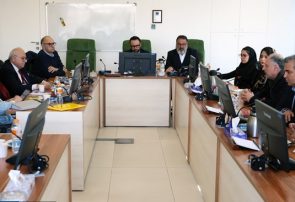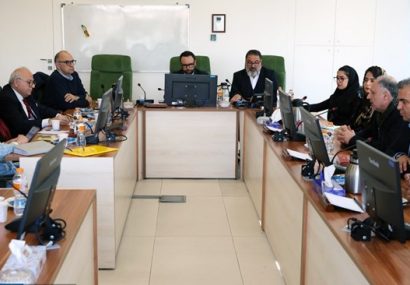Iran-Japan Cultural Week Proposed by Iran Chamber of Commerce Carpet Commission
TEHRAN (Iran News) During the session, members proposed organizing an Iran-Japan Cultural Week in collaboration with the Iran-Japan Joint Chamber and the Carpet Commission, citing the cultural proximity between the two countries as a foundation for enhanced cooperation.
Hossein Salahvarzi, President of the Iran-Japan Joint Chamber, opened the meeting by highlighting the historically amicable relations between Iran and Japan. “There is no negative memory of Japan in the historical consciousness of Iranians,” he stated, noting Japan’s potential to meet Iran’s technological and technical needs. Despite sanctions, Salahvarzi emphasized that trade between the two nations has not entirely ceased, and a broad range of non-trade activities—such as cultural and humanitarian exchanges—are feasible and included in the Joint Chamber’s agenda for the coming year.
Acknowledging the challenges posed by sanctions, Salahvarzi suggested redirecting cooperation toward non-sanctioned sectors, including pharmaceuticals, humanitarian efforts, environmental projects, education, and research. He stressed the critical need to secure OFAC (Office of Foreign Assets Control) permits to facilitate collaboration with Japan, adding that the Joint Chamber is prepared to work closely with the Carpet Commission and specialized associations on initiatives involving carpets and handicrafts.
Salahvarzi also lamented Iran’s absence from Japan’s Expo due to logistical issues, describing it as a missed opportunity for Iranian businesses.
Abolfazl Roghani Golpayegani, an advisor to the President of the Iran Chamber of Commerce, echoed Salahvarzi’s sentiments, affirming the consistently positive relationship with Japan. He urged the private sector to leverage the Iranian diaspora in Japan to boost trade.
Asadi, a representative of JICA (Japan International Cooperation Agency) in Iran, outlined JICA’s role as the development arm of the Japanese government, operating under Japan’s Ministry of Foreign Affairs. With a presence in over 100 countries, including a 50-year history in Iran, JICA collaborates with governments on joint research, technical assistance, loans, and grants. In Iran, JICA coordinates through the Ministry of Foreign Affairs and the Budget and Planning Organization, with past projects focusing on healthcare, waste management, environmental protection, earthquake preparedness, and air pollution.
Asadi acknowledged that sanctions have delayed projects, requiring lengthy OFAC negotiations, while additional internal restrictions in Iran since 2022 have further complicated efforts. He advised that proposals for JICA collaboration must first be submitted to Iran’s Budget and Planning Organization.
Morteza Haji-Agha Miri, President of the Carpet, Art, and Handicrafts Commission, underscored the commission’s role in fostering international engagement. He called on provincial chambers and trade associations to tap into JICA’s resources via the Budget and Planning Organization. “Culture is a way to circumvent sanctions or counter their narrative,” he said, reiterating the commission’s priority to promote the economy of culture and arts through events like cultural weeks. He formally proposed the Iran-Japan Cultural Week as a collaborative effort with the Joint Chamber.
- source : IRAN NEWS ECONOMIC DESK






























